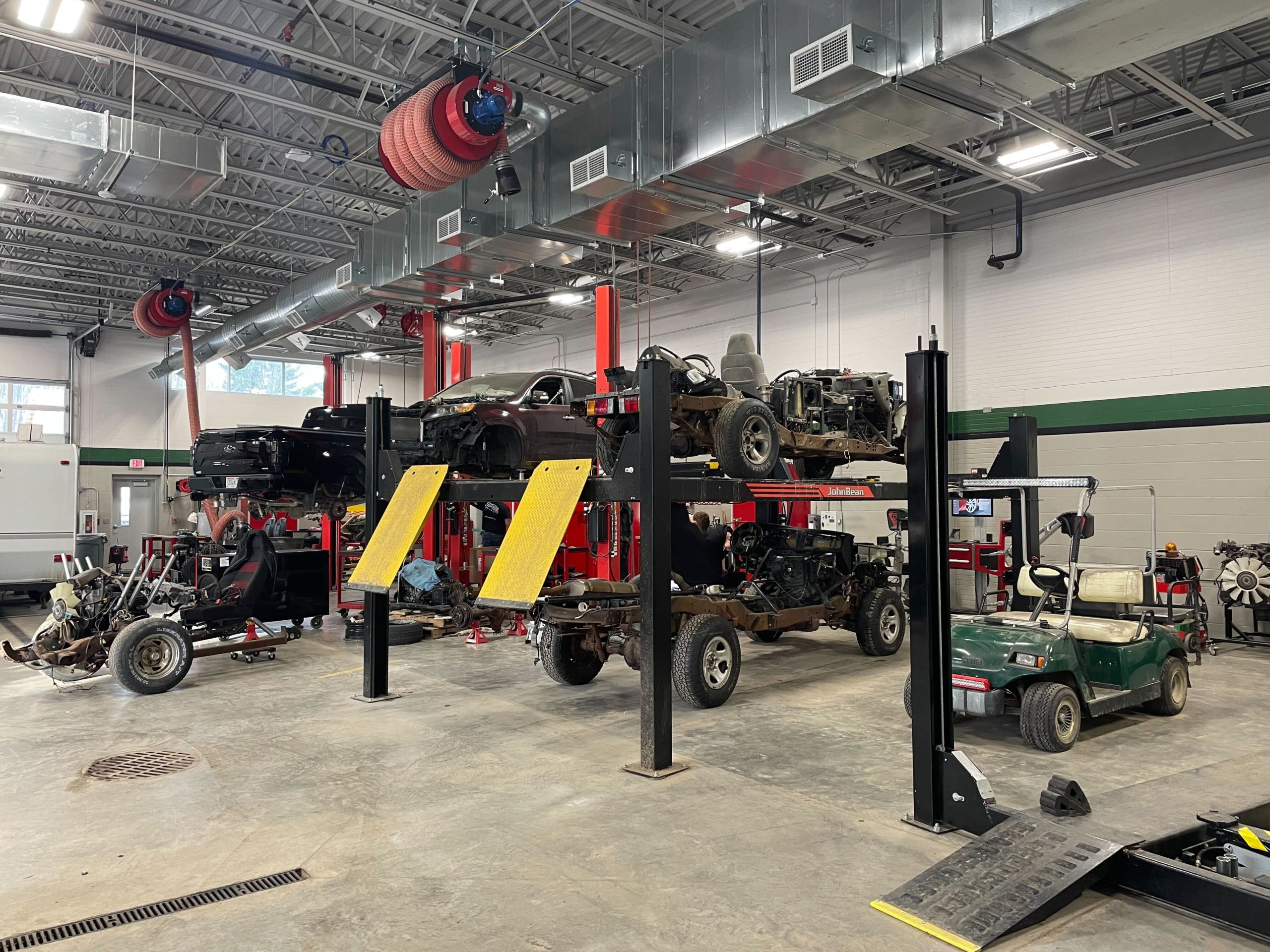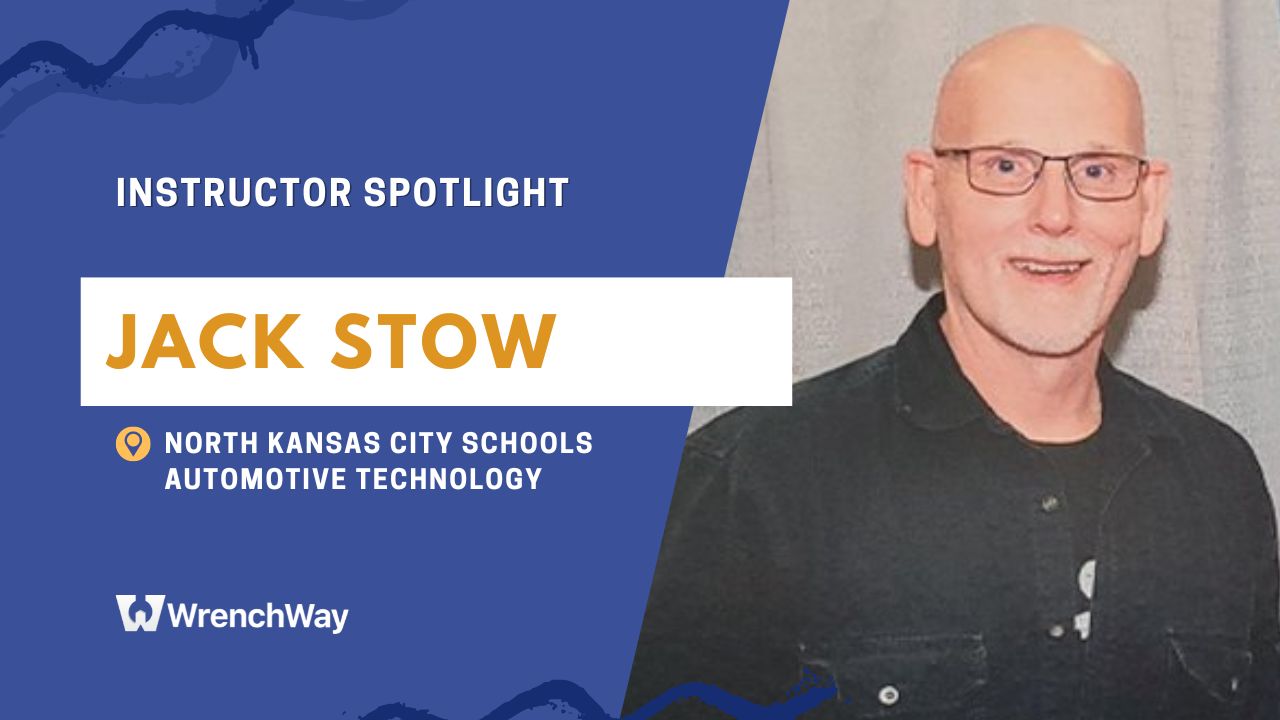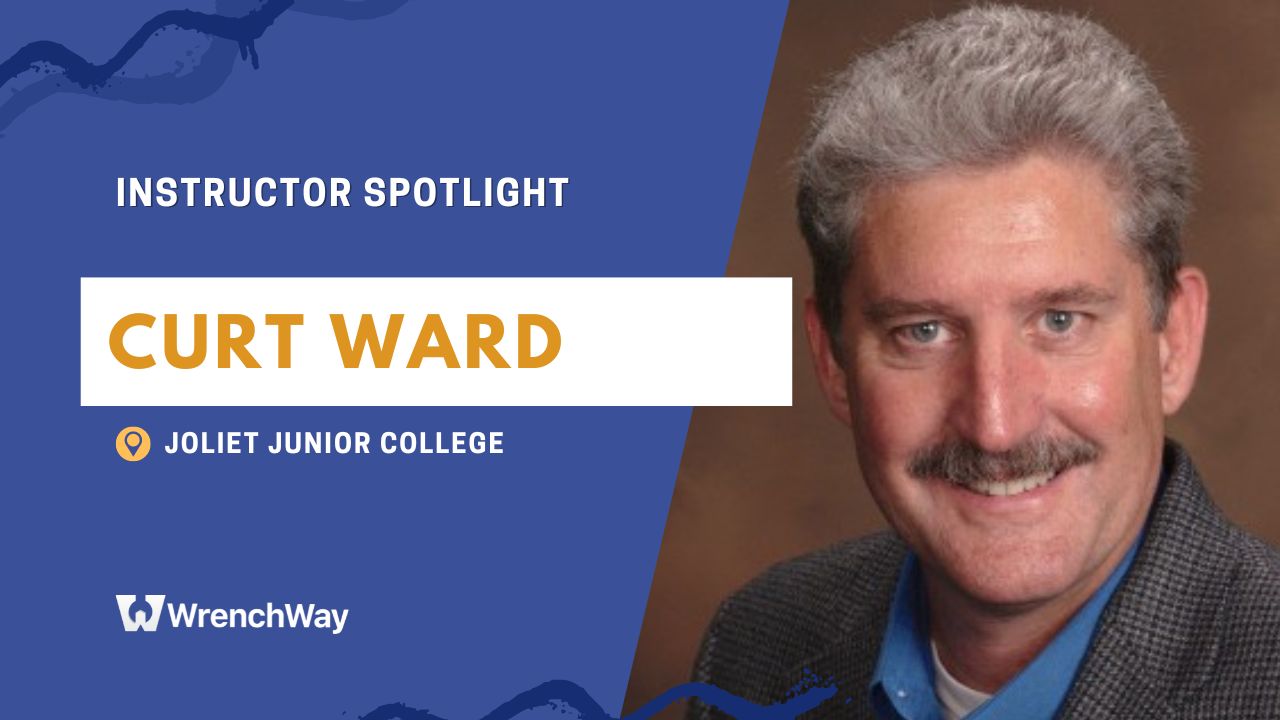This article is part of an ongoing series to highlight instructors in the automotive and diesel industries and promote the technician career. Are you an instructor who wants to be spotlighted? Sign up!
Instructor Spotlight: Rick Lockwood
Name: Rick Lockwood
School: Clackamas Community College
Experience: 12 years, Automotive Technician and 15 years, Automotive Instructor
What drove you to become an automotive instructor?
My inspiration to teach began as a senior in high school. My math teacher, Coy Sanders, was my inspiration. He became a lifelong friend of mine, and was the best man in my wedding. However, a math teacher was something I knew I would never be qualified to teach. I had no idea at the time what I wanted to do as a career. Twenty-five years later, I realized I had developed into a pretty good automotive technician. A door opened for me to teach part-time automotive courses at a community college, and I was instantly hooked. I was blessed to have such a great mentor, Steve Michener, for my first teaching experience.
What creative ways do you use to involve local industry in your class?
I invite shop owners into my service shop management class to speak about their experiences as a shop owner. As a former shop owner, I provide free consulting to shops struggling in management areas or need assistance diagnosing a difficult drivability problem. This always gives me an opportunity to talk about our program with shop owners and gives them a taste of some of the skills we teach our students. Most cases, this opens the door for further conversations about how they can get involved with our program. Most recently, our program has developed an internship program allowing new industry partners to be more connected with our program and allows them the opportunity to be an active participant in the development and mentoring of our students in the industry.
What do you wish your students knew more about in regards to becoming a technician?
The reality of working in a shop and having to be accountable.
How do you teach/show your students what to look for in a good shop?
I often tell my students about what it is like working in a poorly managed shop vs. a top shop. The first thing I want them to understand is if a shop owner or dealer manager is not willing to invest in them to help achieve their personal goals, move on to someone who will. If the owner or manager is not willing to actively support and participate in their professional goals, they do not deserve to have you as an employee. Second, are you appreciated in the work you do? Did anyone in management ever say thank you for being on our team, you’re doing a great job? Do you feel valued?
As an instructor, what is your biggest challenge?
I do not consider myself an efficient person when it comes to paperwork. I would much rather be lecturing to my students — demonstrating how to perform a diagnosis or repair on a vehicle than creating a rubric for grading. My background is fixing cars. That is what I know — not learning how to use the latest Microsoft operating system or creating spreadsheets. Also, as an accredited program through ASEEF, I struggle with teaching students how to perform the required ASEEF shop tasks and what best practices are in today’s top shops.
What is the most rewarding part of your job?
I love to see students succeed in this industry. I remember many years ago when I used to coach my kids in soccer, to get 110% effort out of those young little souls, I had to inspire them. The skills they needed to be a great soccer players would not happen for years to come. What I needed to focus on was doing everything I could not to crush the love they had for the sport. Constant encouragement and positive reinforcement were a must to drive them to keep trying. Even when they did it wrong, I would reward them verbally for their effort and find something positive they did in their attempt. I feel very privileged and honored that most of my students allowed me to be a part of not only their professional development, but their personal achievements as well. It means so much to me when former students still take the time to reach out and share proud moments and accomplishments in their life with me. The little things matter.
What advice would you give your students who are about to graduate and join the industry?
Don’t chase the money. Set life and career goals. Be humble, and aspire to be the best at whatever you choose to do. Always remember, you are who you are even when no one is looking. Always be open to learning new things. I feel life will go well if you follow these simple truths.





